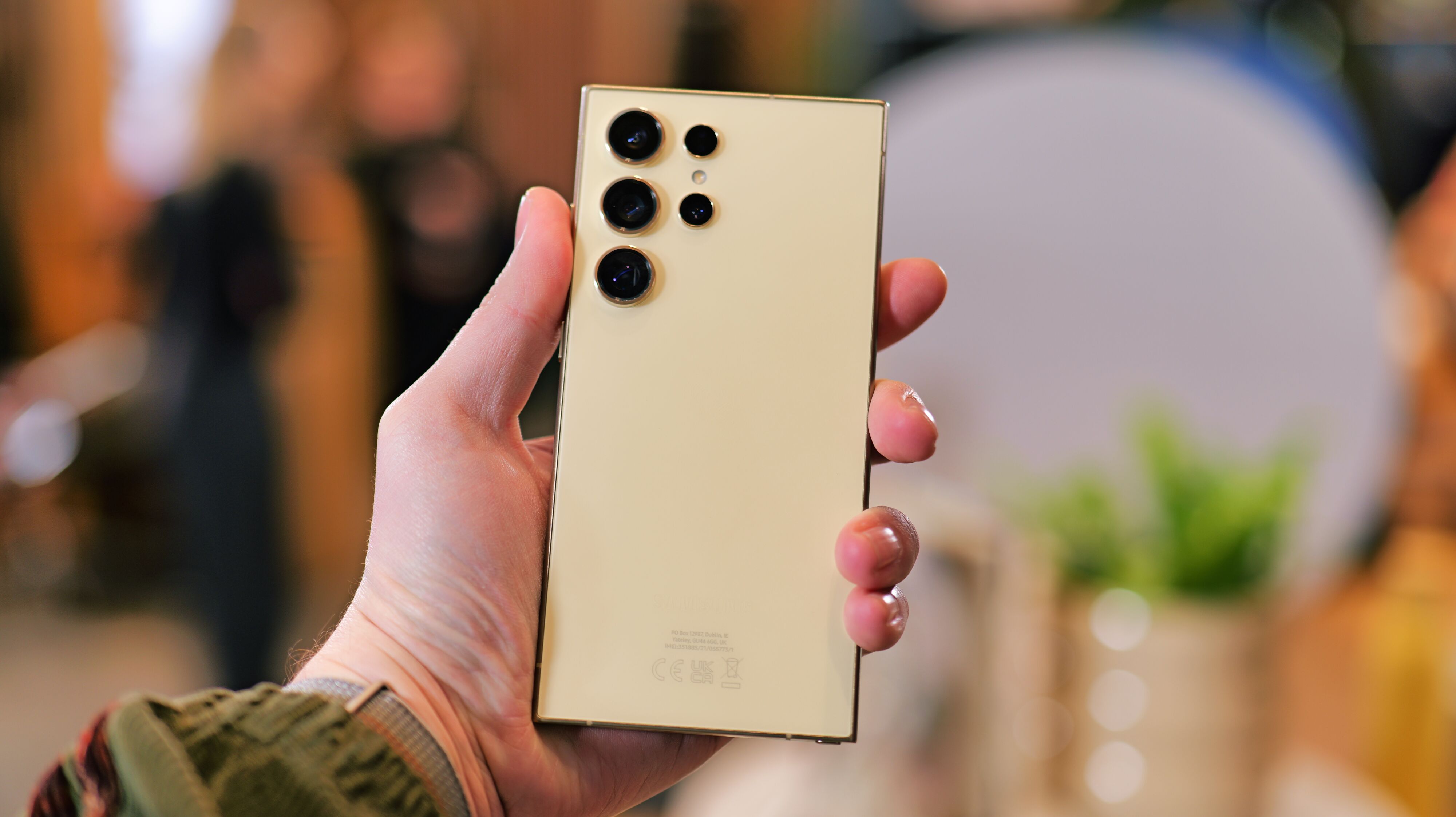
Samsung’s hotly anticipated trio of flagship smartphones for 2024 have arrived right on schedule. They’re almost guaranteed to be some of the best Android phones of the year, and we couldn’t wait to see what the next generation has in store.
As was the case with the S23 series, and the S22 series before that, the S24 lineup sports a familiar look and feel. At a glance, it might be hard to tell that anything has changed at all. However, thankfully, there’s a lot more going on with these devices than first meets the eye – and there are upgrades to get excited about in almost every area.
There are three models in the S24 series, as we have come to expect, the S24 is the smallest, the S24+ offers a similar design but with a larger display, and the top-of-the-line S24 Ultra has its own unique look with extra cameras and an integrated stylus.
This year, there’s a heavy focus on AI-powered software magic, but there are plenty of changes to the hardware, too. So let’s dive in and find out exactly what’s new with the Samsung Galaxy S24 smartphones.
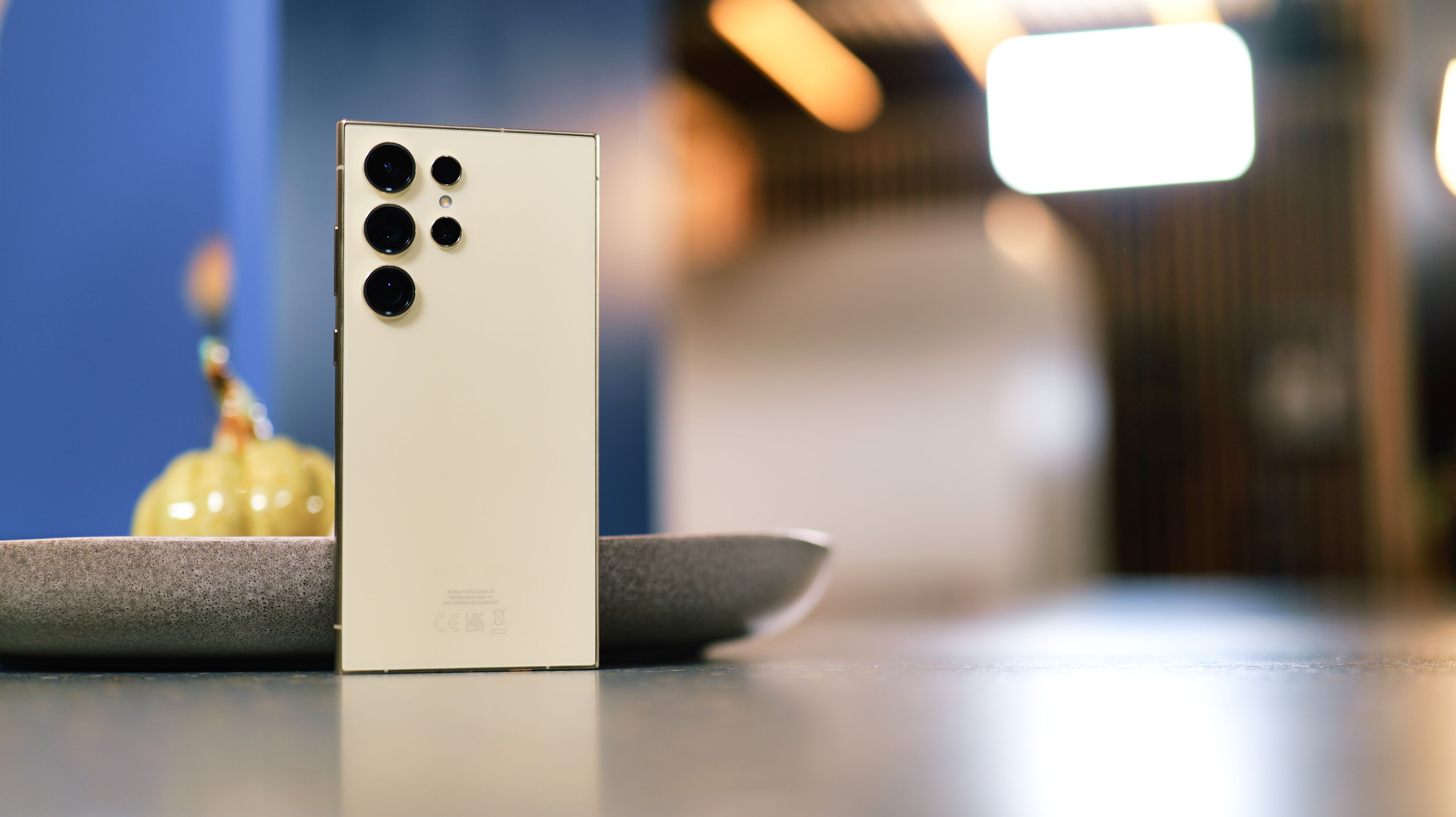
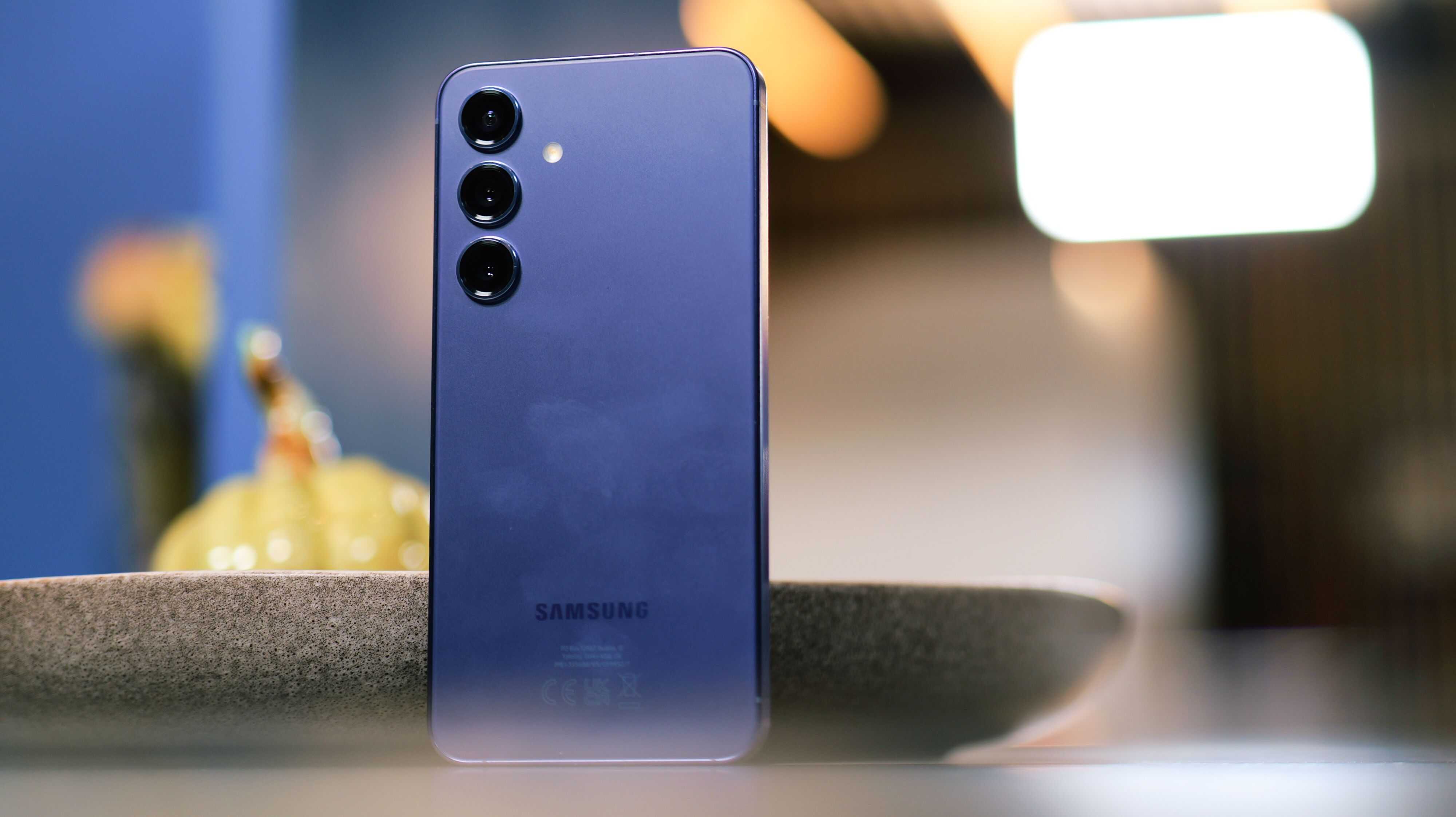
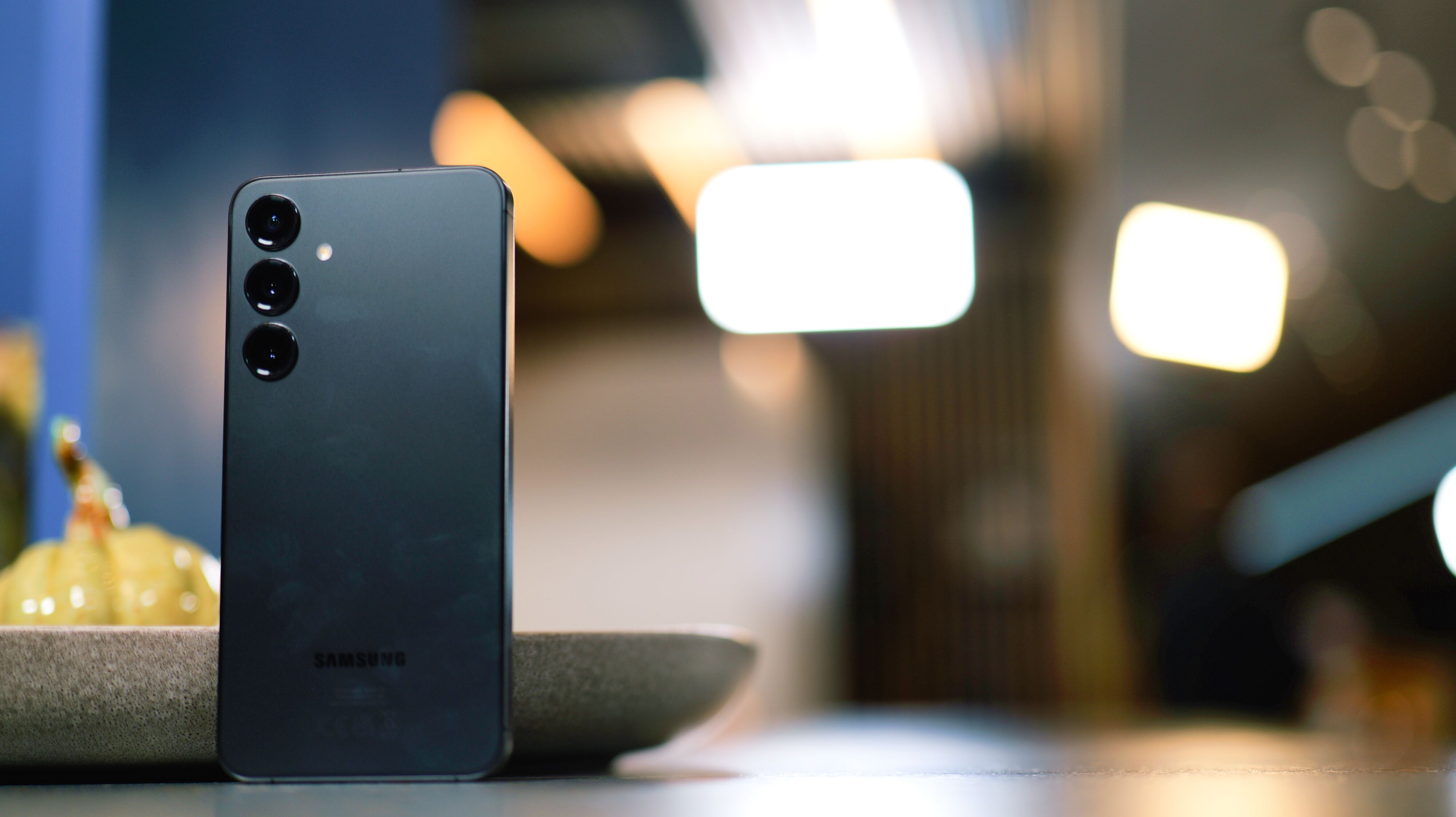
Specifications
Price & Availability
The base model Samsung Galaxy S24 will retail for £799 / $799, the Galaxy S24+ goes for £999 / $999 and the Galaxy S24 Ultra will cost £1249 / $1299.
They’re all available to pre-order now, and if you do so via Samsung’s website before January 30, you get a free upgrade doubling your storage (256GB for the price of 128GB, and so on).
Design & Handling
Starting with the S24 and S24+, as mentioned already, these two handsets look and feel almost identical to their 2023 counterparts. They’re almost exactly the same size and still feature flat displays, flat backs, and an Armor Aluminium frame.
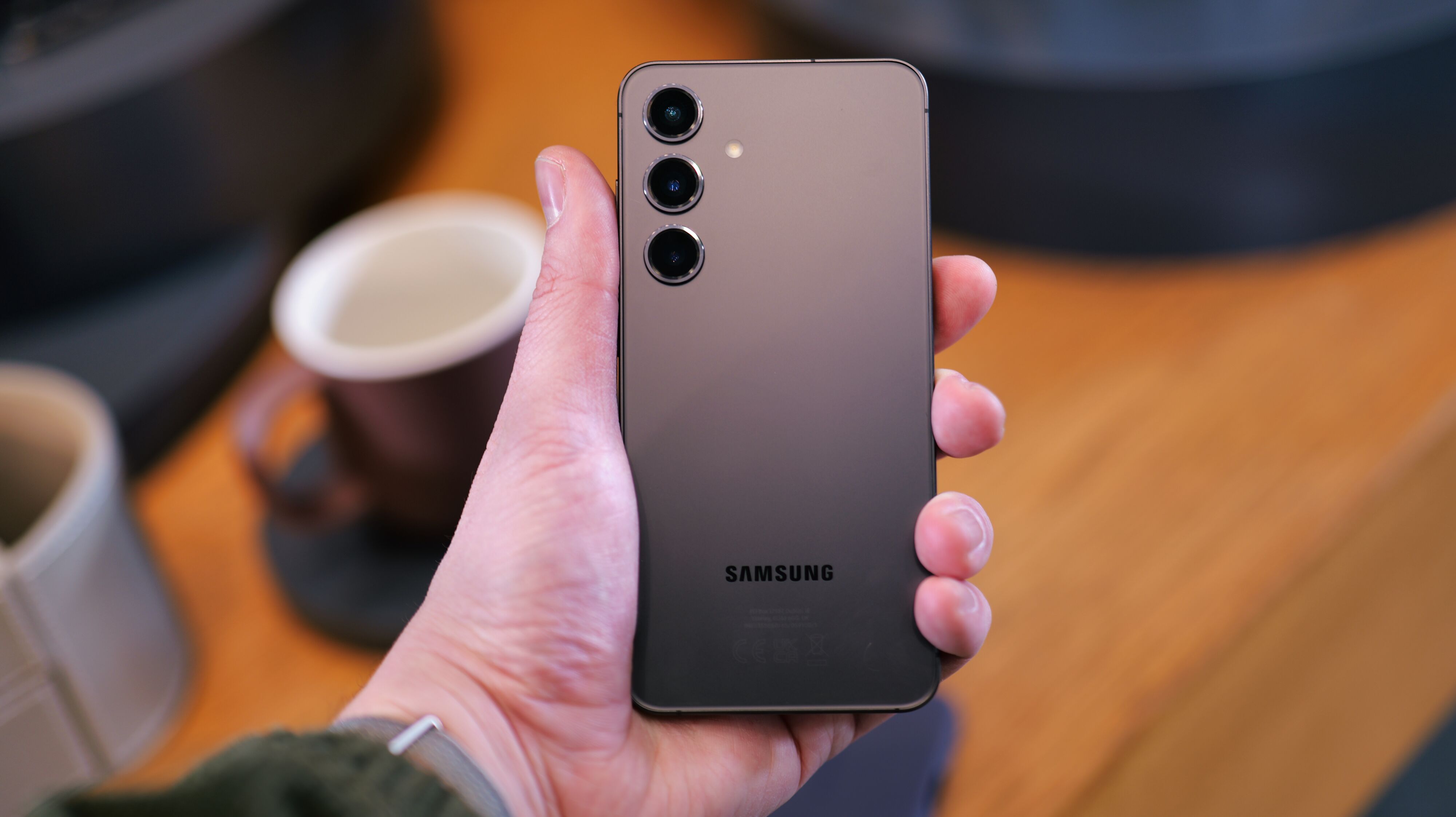
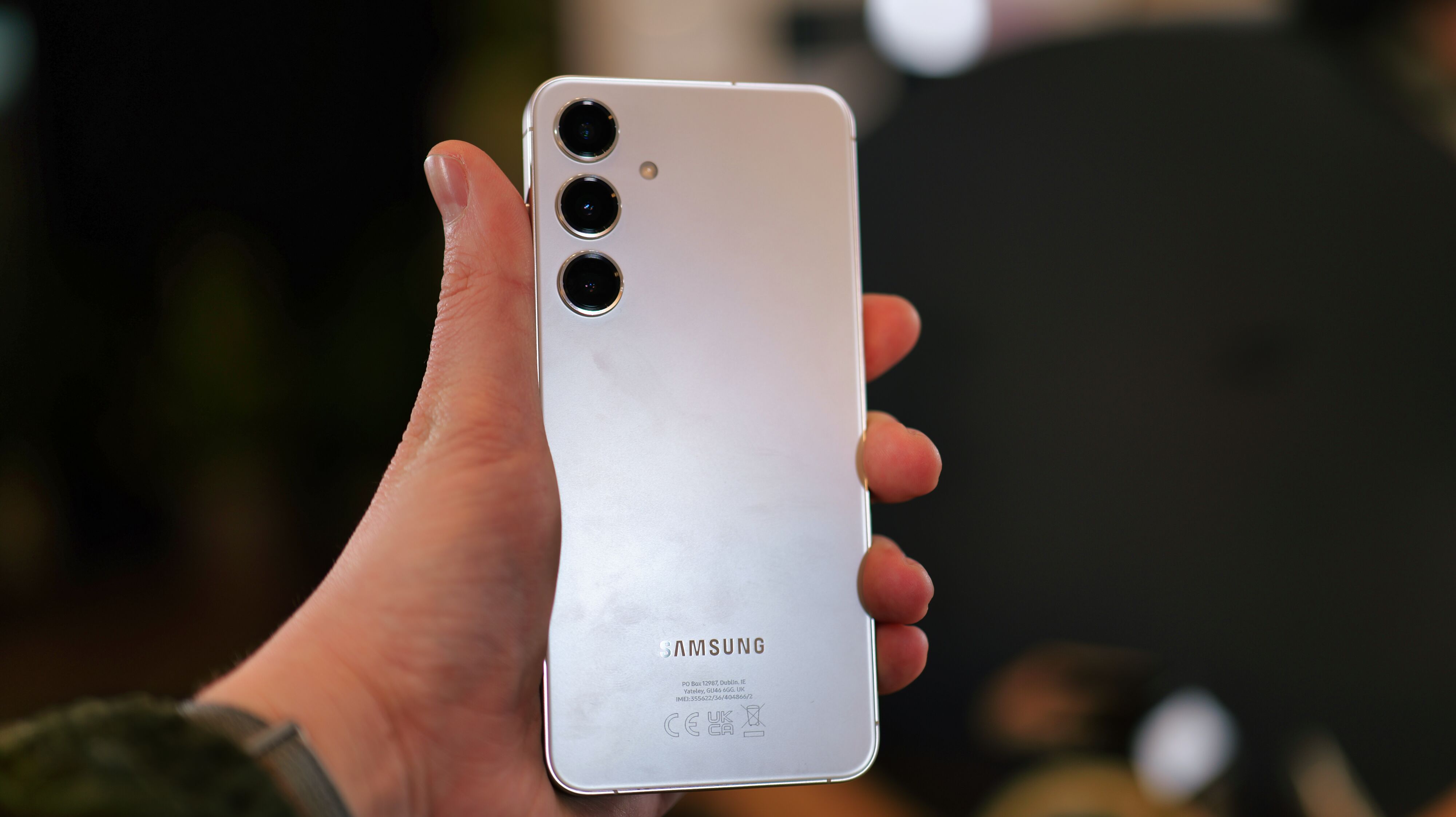
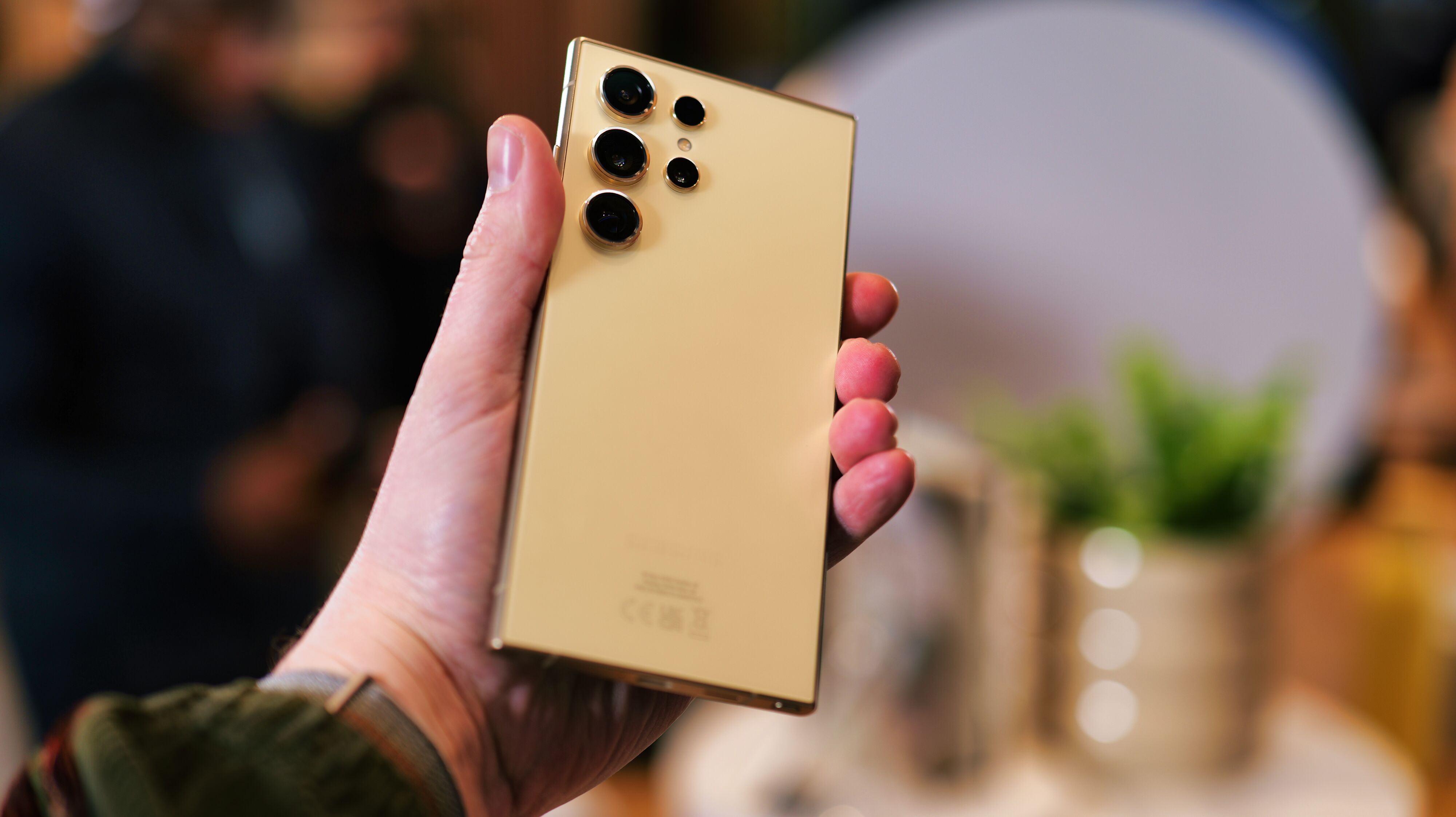
There are, however, a few differences this time around. The most obvious is the color choices. You can select between black, onyx grey, amber yellow, and cobalt violet as standard, with more color options exclusive to the Samsung online store. These colors are matched on the frame of the phones, too, which are now flatter and have a more matte finish, a lot like the iPhone 15 series.
Samsung has also made the bezels of the display smaller, so although the handsets are the same size, the displays are actually slightly larger. The selfie camera cutout has shrunken, too, so there’s less interruption to the viewing experience. The entire range now supports a 1-120Hz adaptive refresh rate and can output an astonishing peak brightness of 2,600 nits.
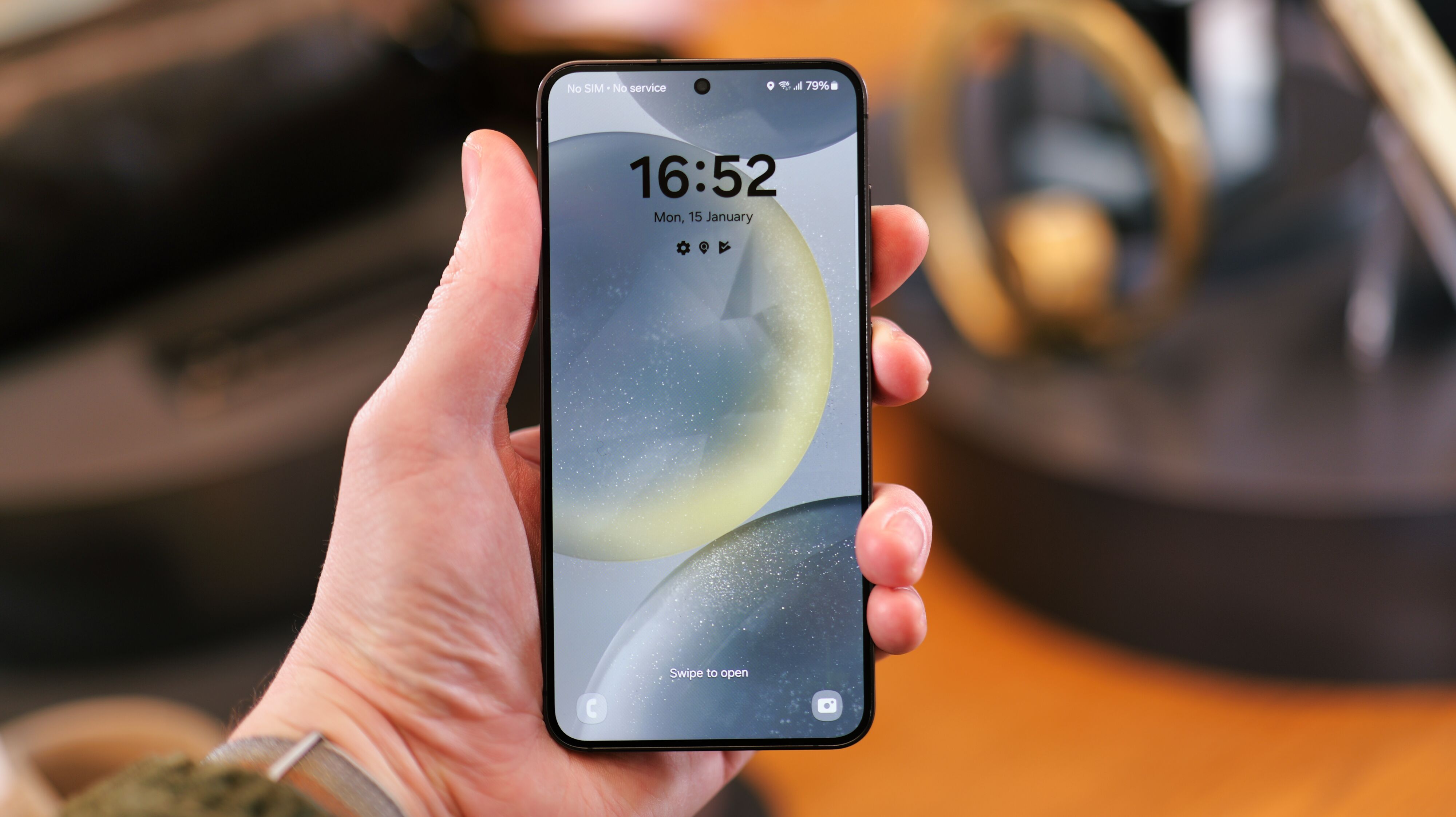
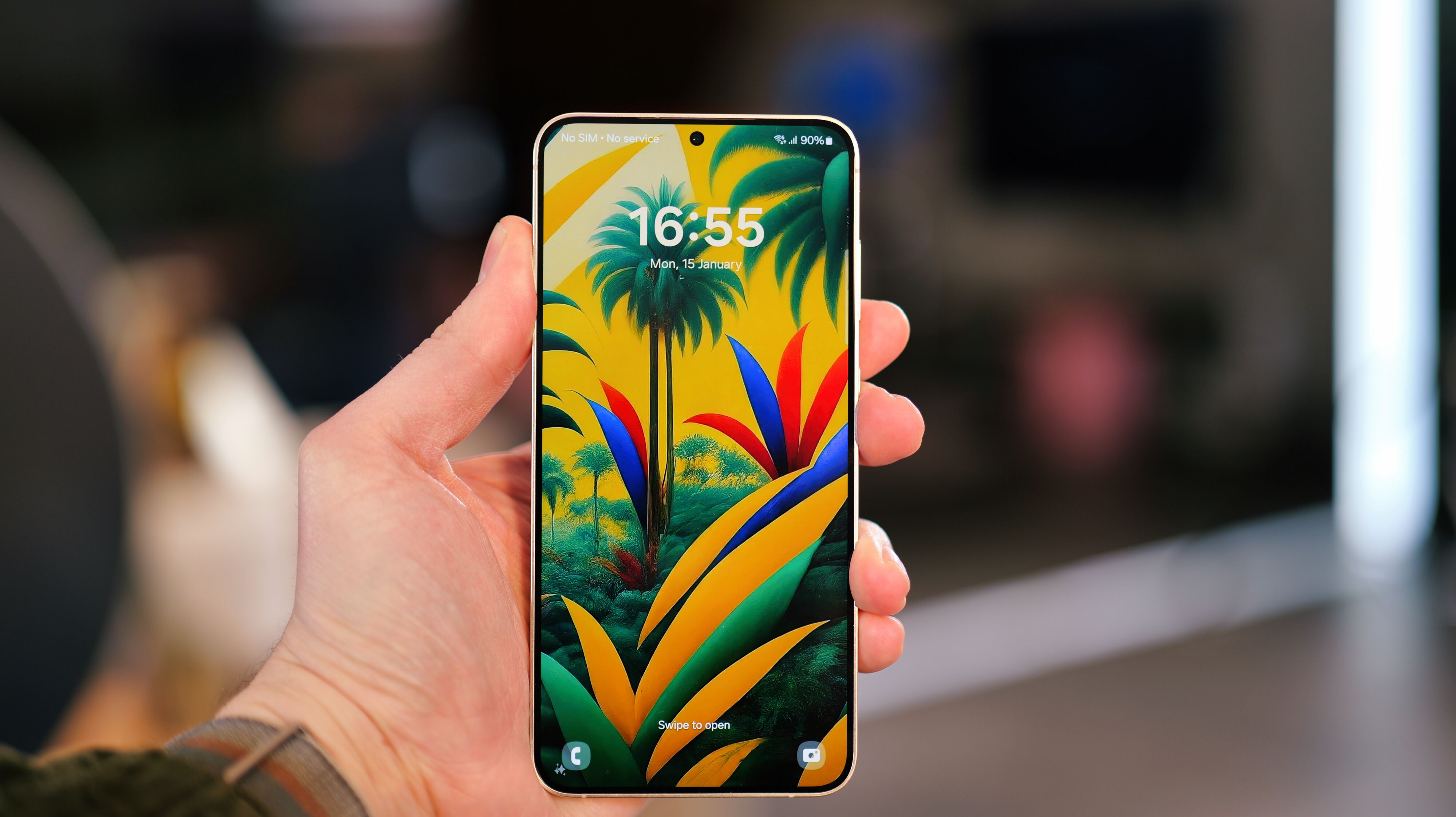
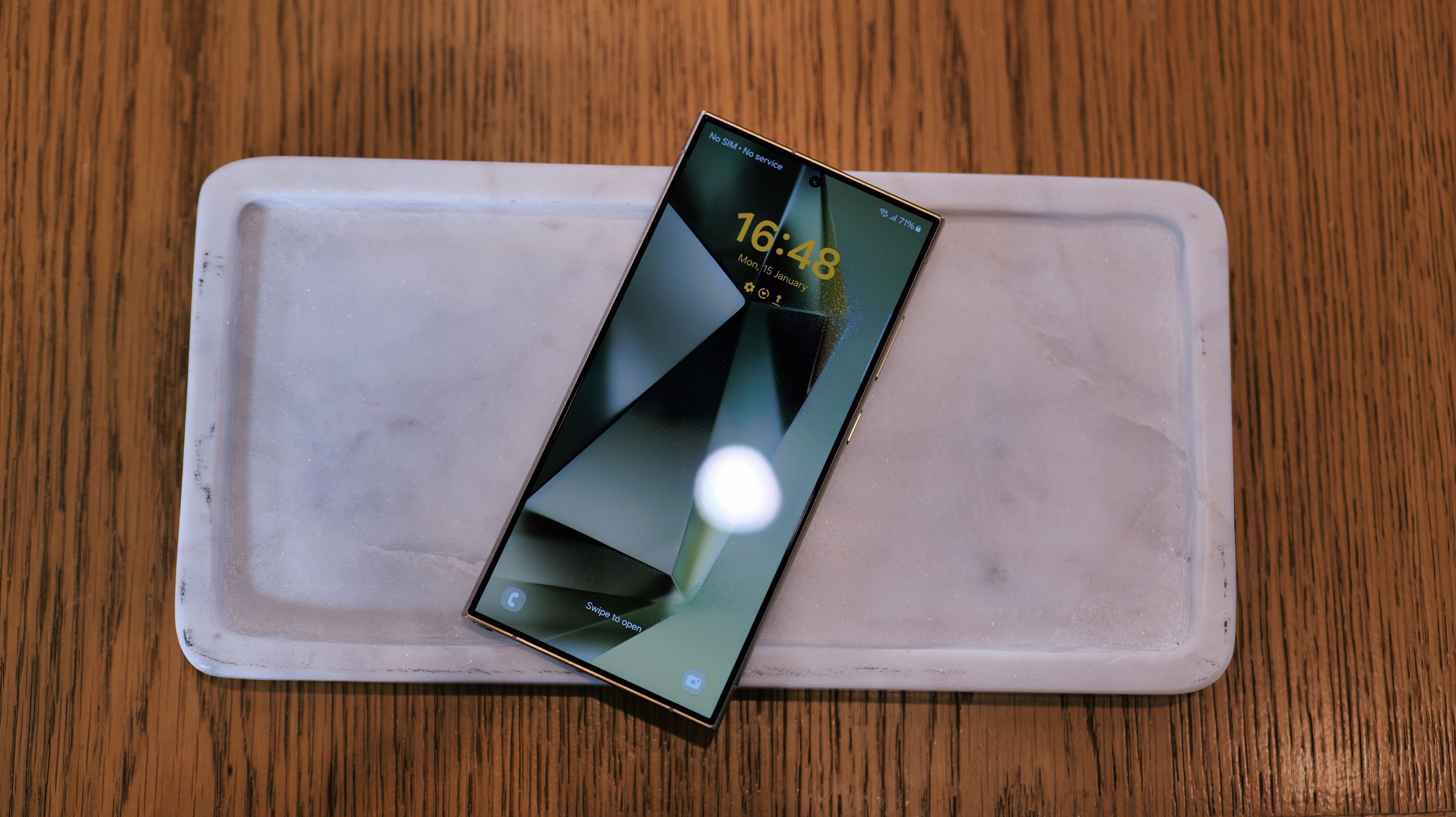
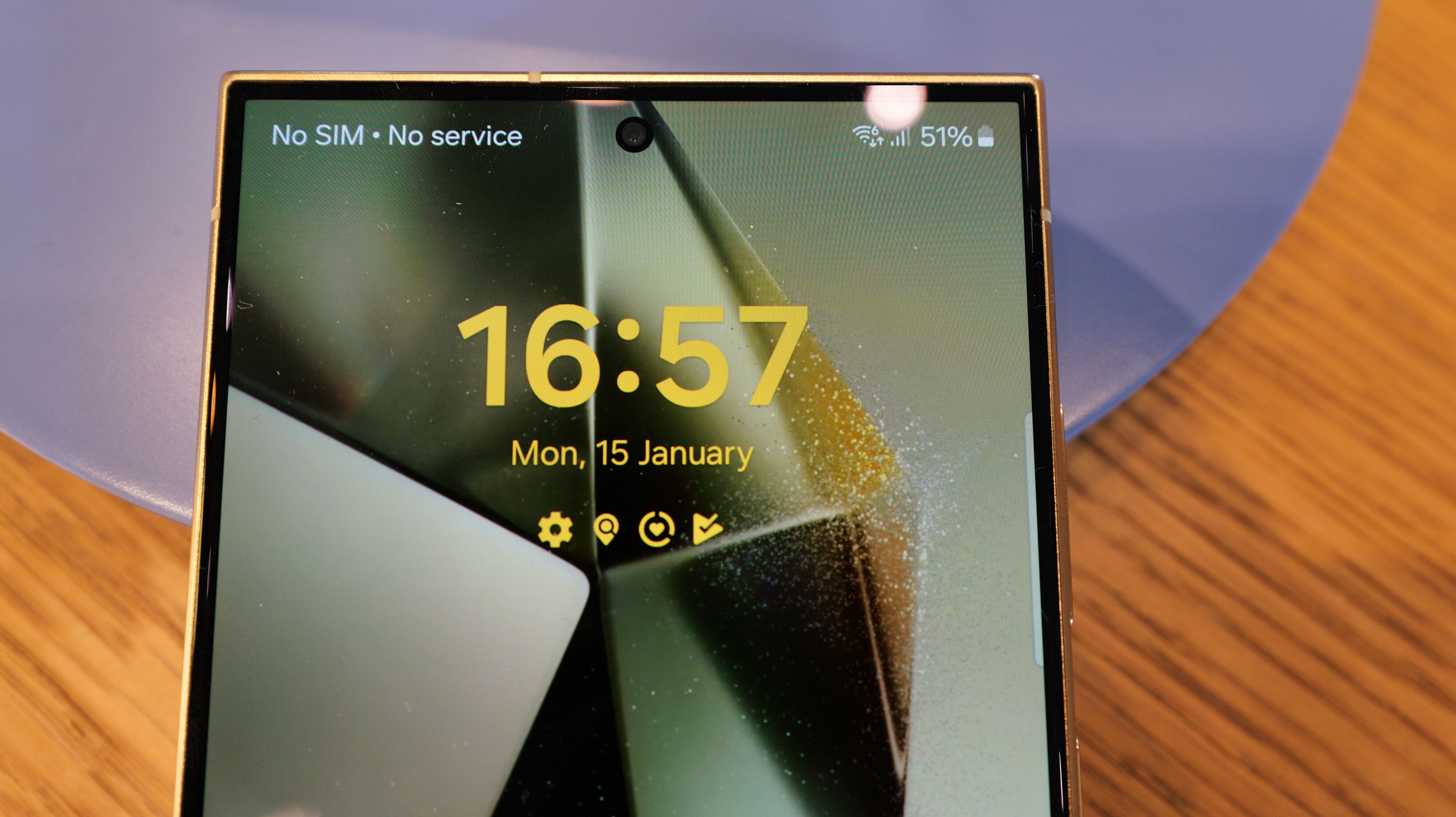
On the flagship S24 Ultra, the display is now covered with Corning Gorilla Armor, a new type of glass that’s exclusive to Samsung. Samsung says it’s 4 times more resistant to scratches and offers up to a 75% reduction in glare and reflectivity.
The Ultra takes this durability a step further, too, replacing its aluminum frame with a titanium one. Clearly, Samsung took some inspiration from Apple here, but for good reason. The titanium frame is supposedly 56% more durable, and it also offers a nice premium feel.
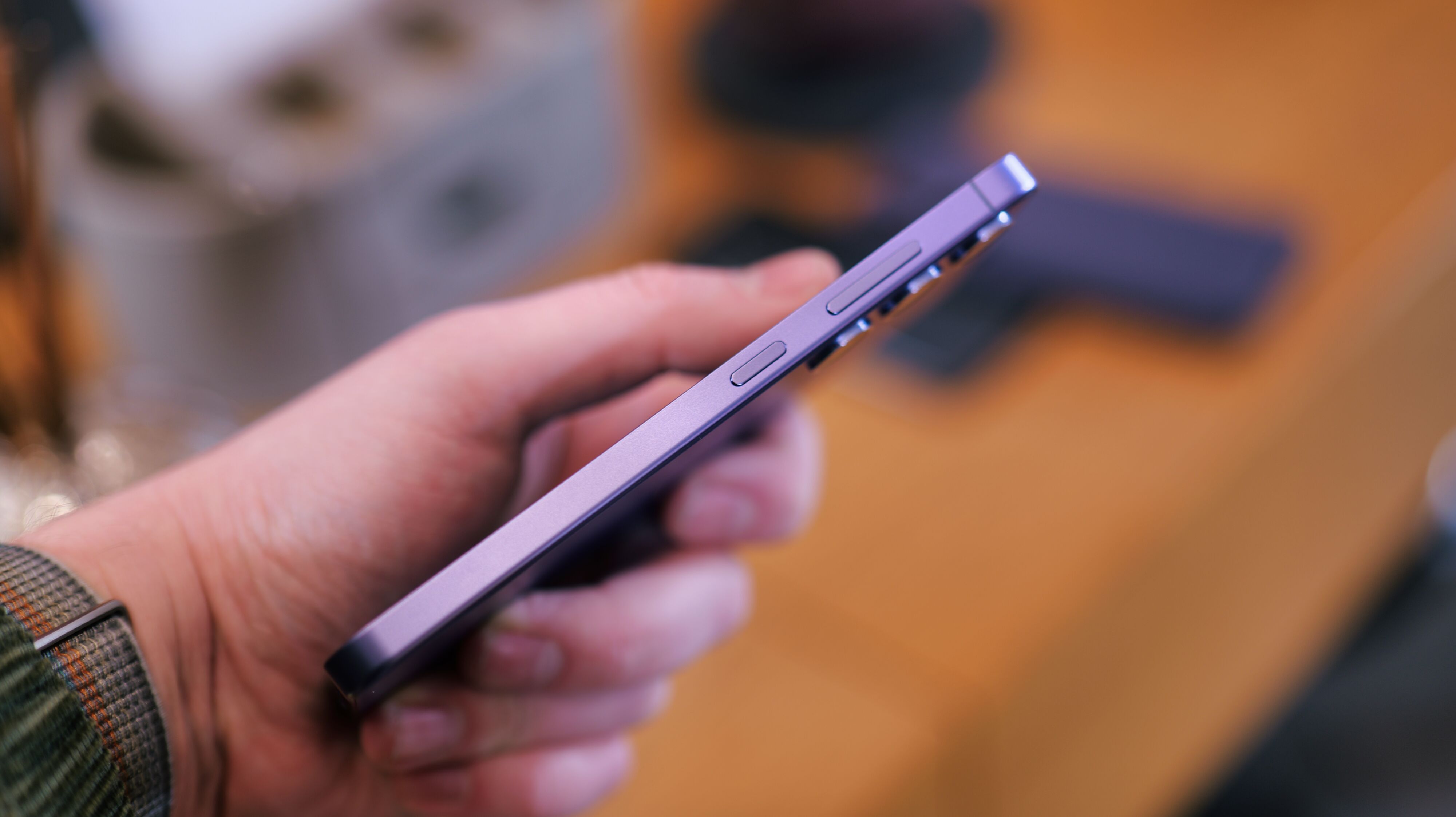
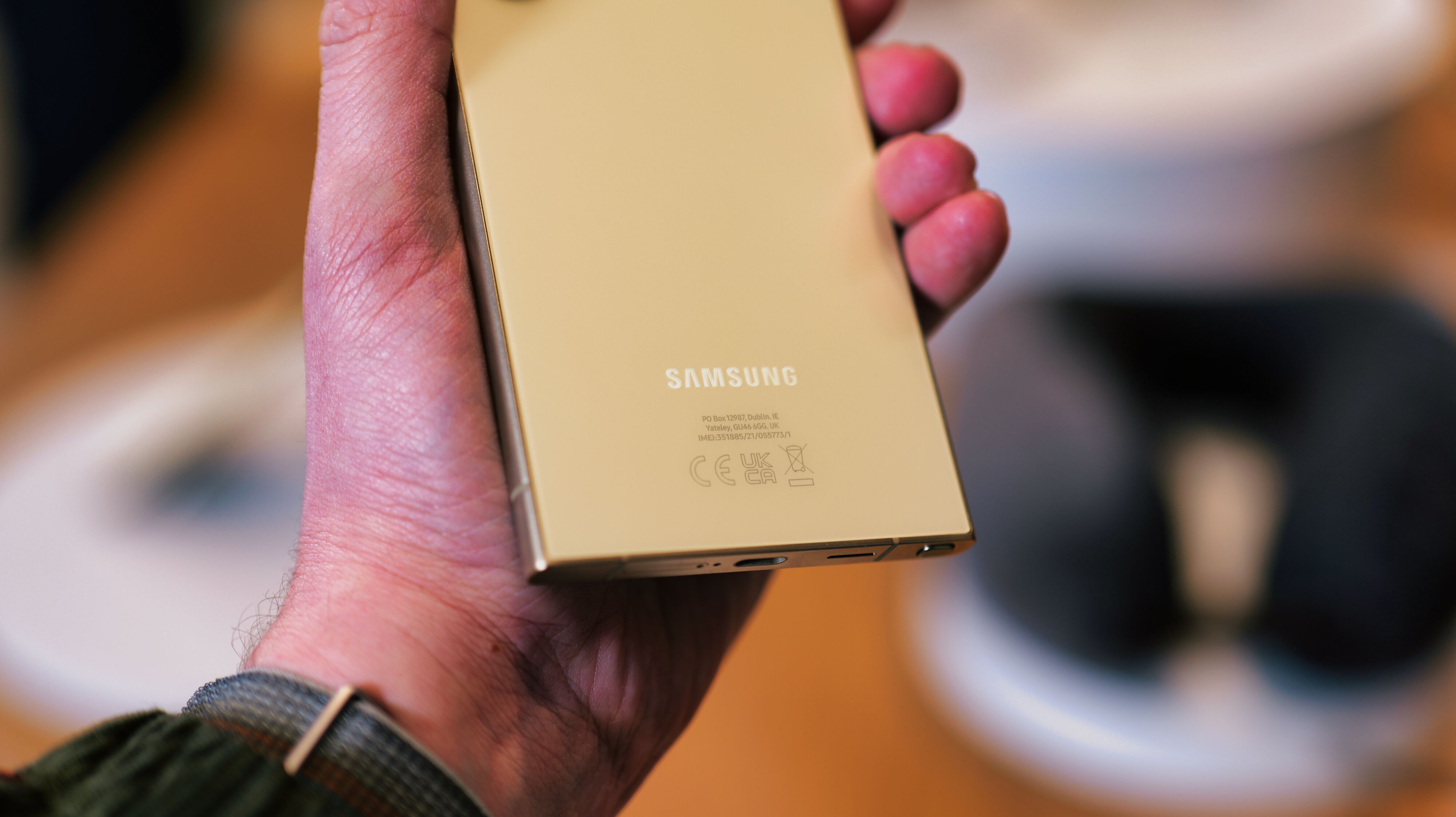

The S24 Ultra is available in titanium grey, black, amber yellow, or cobalt violet, and again, exclusive colors can be had via the Samsung store.
This year, the display is almost completely flat, though the edges do subtly curve to meet the rounded sides of the frame. The bezels and punch-hole cutout have also shrunken slightly on this model.
Performance
In the US, all three handsets will run on the Snapdragon 8 Gen 3. While in Europe –the Samsung Galaxy S24 and S24+ are powered by the Exynos 2400, while the Galaxy S24 Ultra runs on the Snapdragon 8 Gen 3.
All of these chipsets are special "For Galaxy" editions, which means they have a custom tune for Samsung devices and should provide a small uplift in performance compared to competing brands.
I’ve only spent a short amount of time with these handsets at a pre-release preview event, so at this stage, it’s hard to tell exactly how big the performance difference is. But, if previous chipsets are anything to go by, I’m expecting the S24 Ultra to have a commanding lead in benchmark scores, as well as better battery life. Of course, I’ll need to test these phones properly before reaching any conclusions.
Arguably, though, it’s the software that’s the most exciting advancement to come along with the S24 series. Samsung has gone all-in on AI, and these phones are packed with convenient features, especially if you frequently need to translate languages or take a lot of notes. These AI features work across all the S24 models and it’s not clear which parts are processed locally and which are cloud-based, I suspect much of it is the latter, and in that case, the processing power isn’t going to be making much of a difference to these new features.
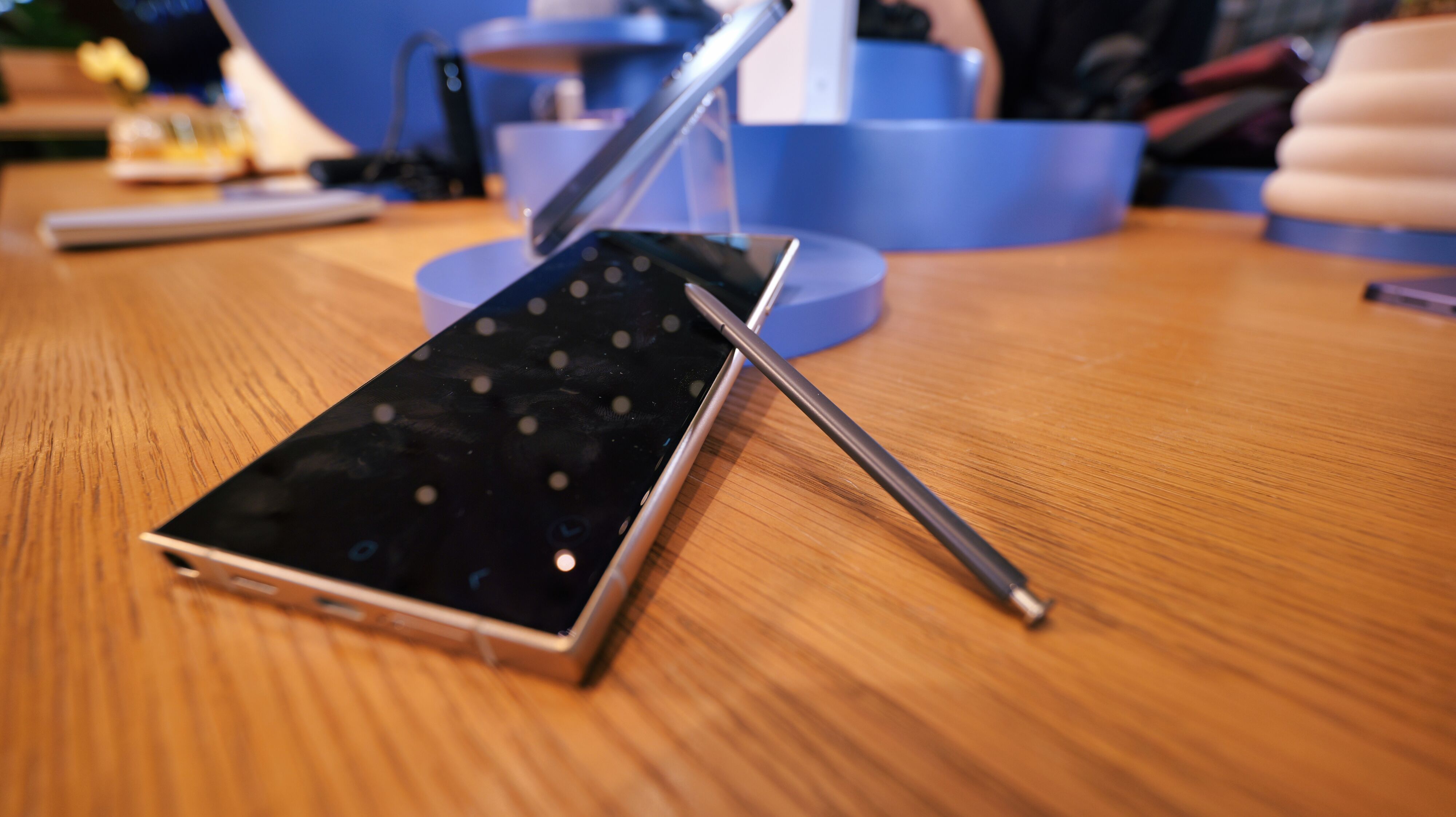
Chat Assist is an AI feature baked into the Samsung keyboard and it works across most applications. It can offer suggested replies, tweak the tone of your writing, and live translate a conversation in both directions. Transcript Assist is a feature that does the same thing but uses voice input instead of text. It’s found in the voice recorder app, and it can automatically recognize different speakers, transcribe conversations and, if necessary, translate them in real time. I can imagine these features being extremely useful for anyone conducting multi-lingual meetings.
There’s also a new feature called Circle to search with Google, and it can be accessed at any time by long-pressing the home button and circling an item on the screen. The phone will then instantly search Google for the item that you have circled. It works a bit like Google Lens, but it’s much quicker to access in this way.
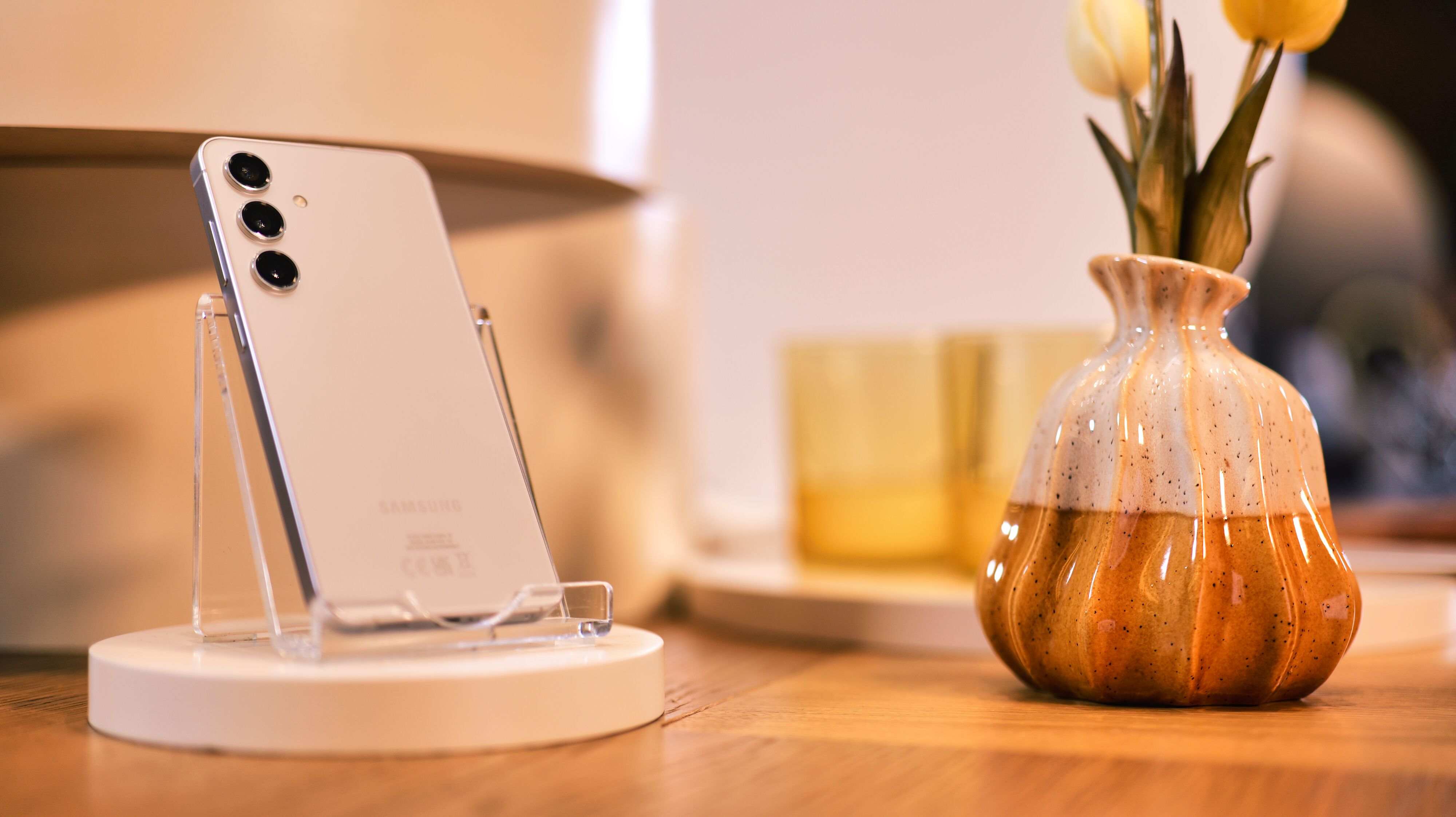
Cameras
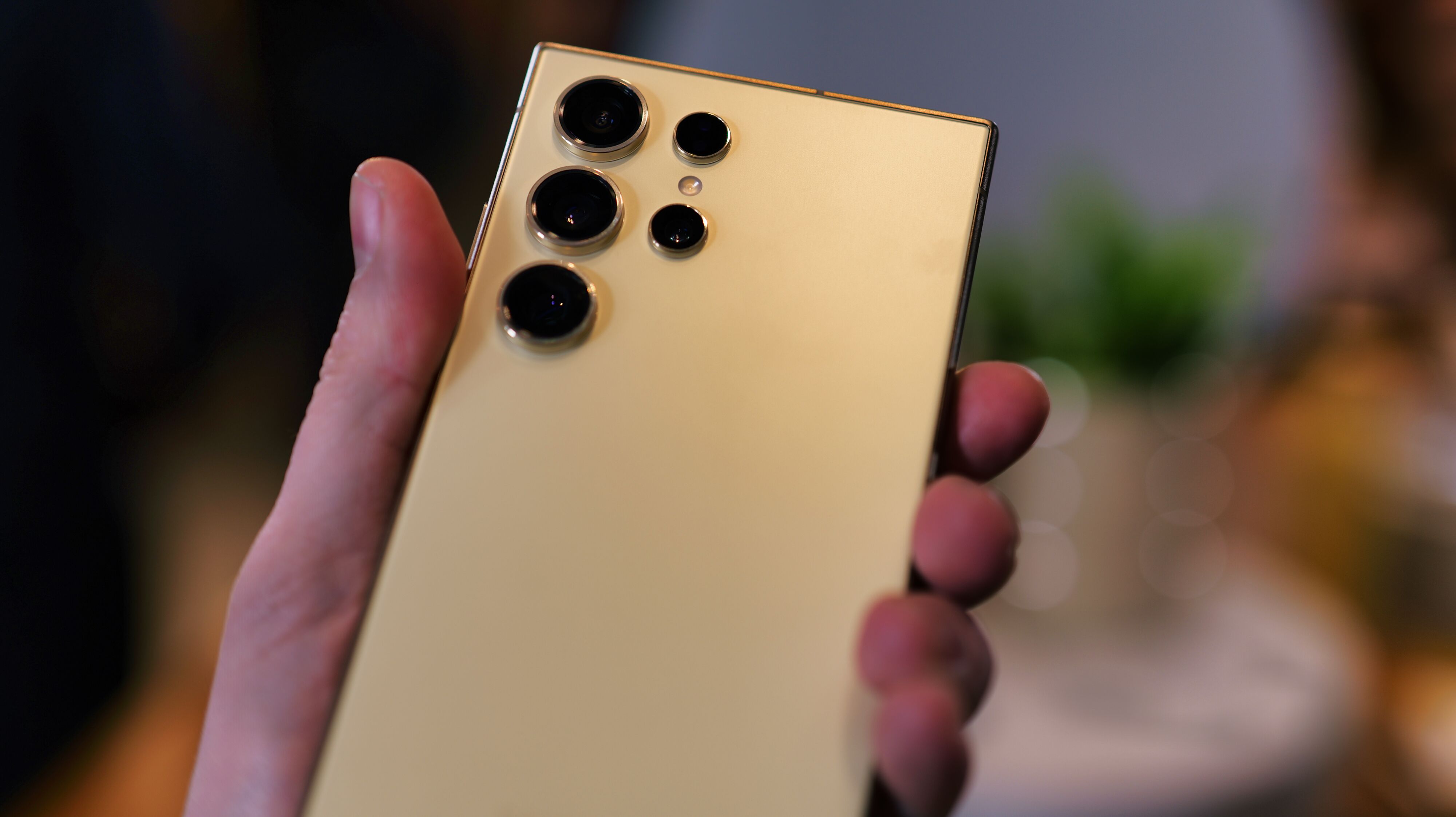
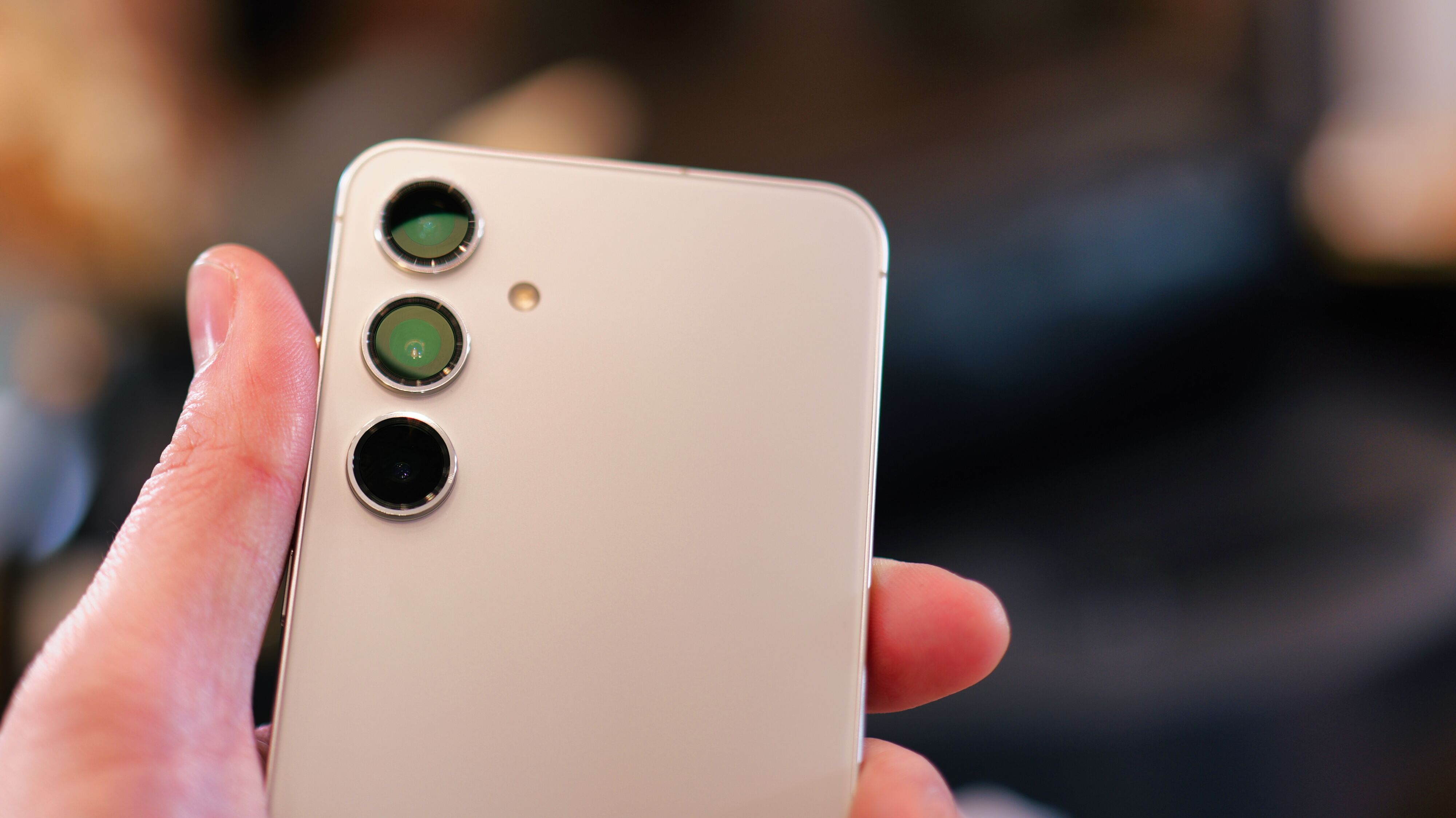
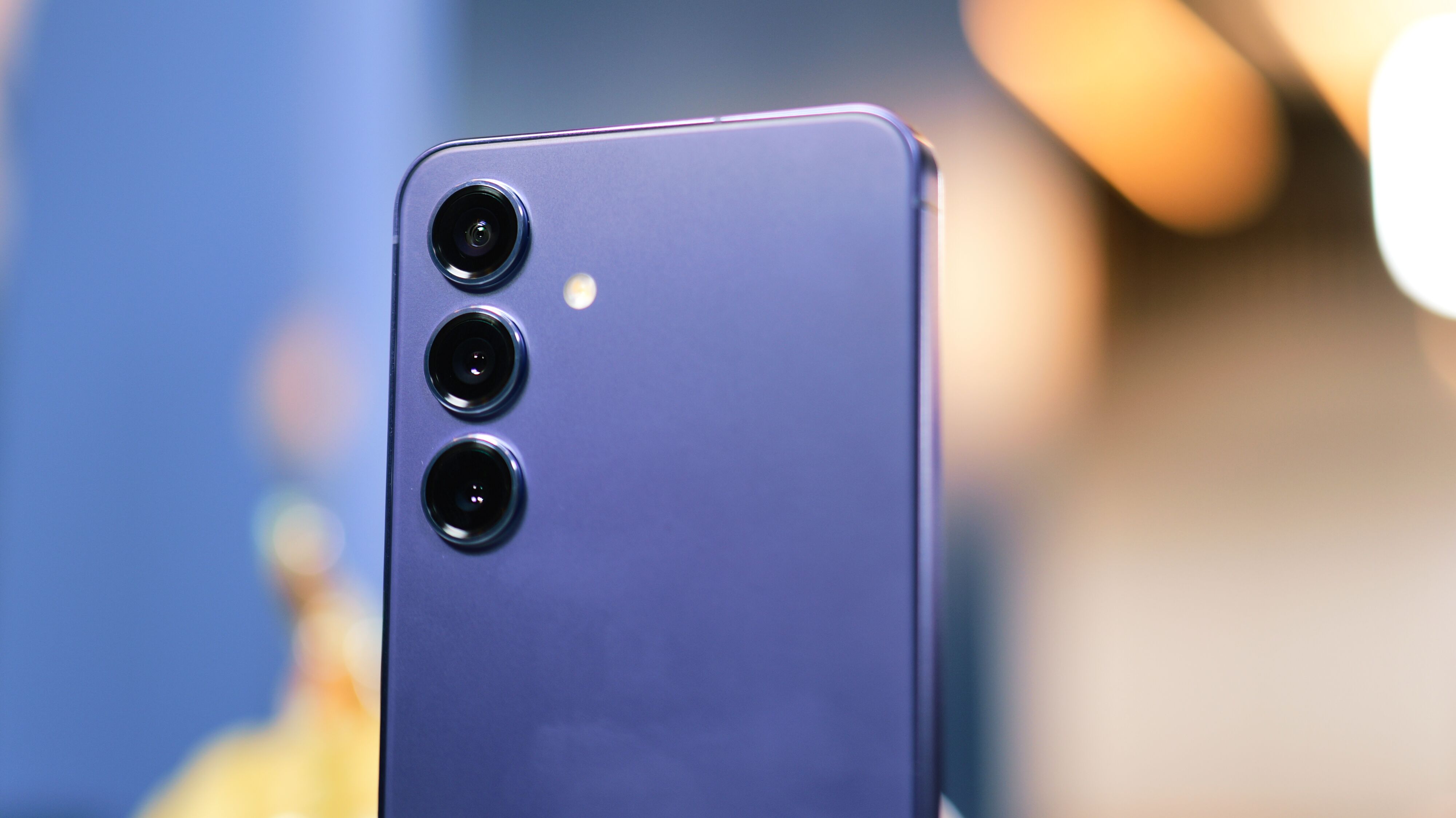
When it comes to the camera hardware, the S24 and S24 Plus have the same camera array as their predecessors. There’s a 50MP 24mm main shooter, backed up by a 10MP 70mm telephoto and a 12MP 13mm ultrawide. Around the front, there’s a 26mm equivalent 12MP selfie camera.
It’s mostly the same story with the S24 Ultra, the 200MP main camera remains, as does the ultrawide and the 70mm equivalent tele lens, but the 10MP 10x telephoto has been replaced. In it’s stead, you get a 50MP 5x telephoto camera with a 1/2.52-inch sensor. It also boasts two times wider optical image stabilization, which should greatly enhance the stability higher up in the zoom range.
It’s a significantly shorter focal length, but it’s also five times the resolution and has a 1.6x larger sensor. Samsung claims that this configuration allows for “optical quality” photos at up to 10x zoom, using a combination of pixel binning and AI image processing.

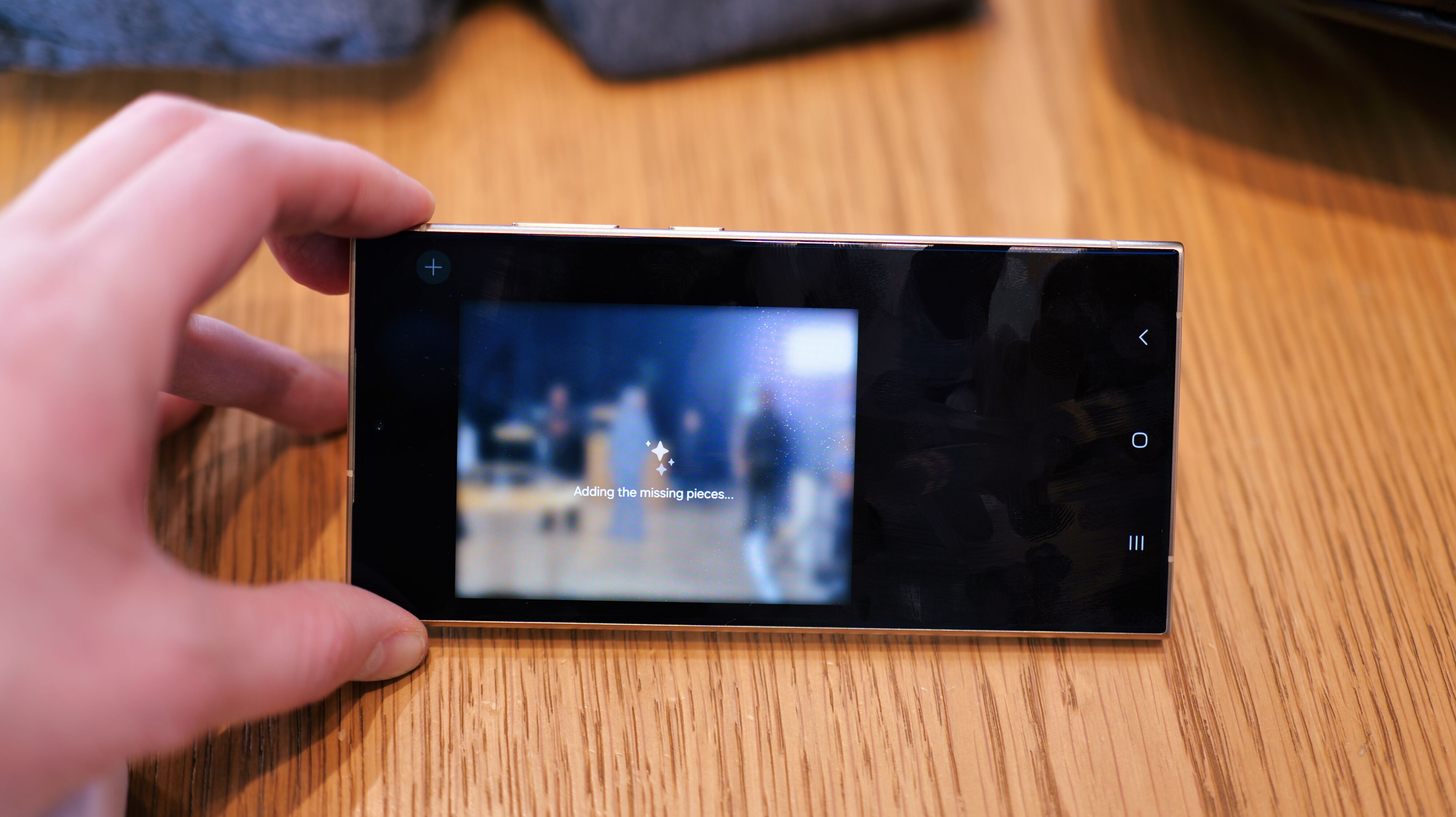
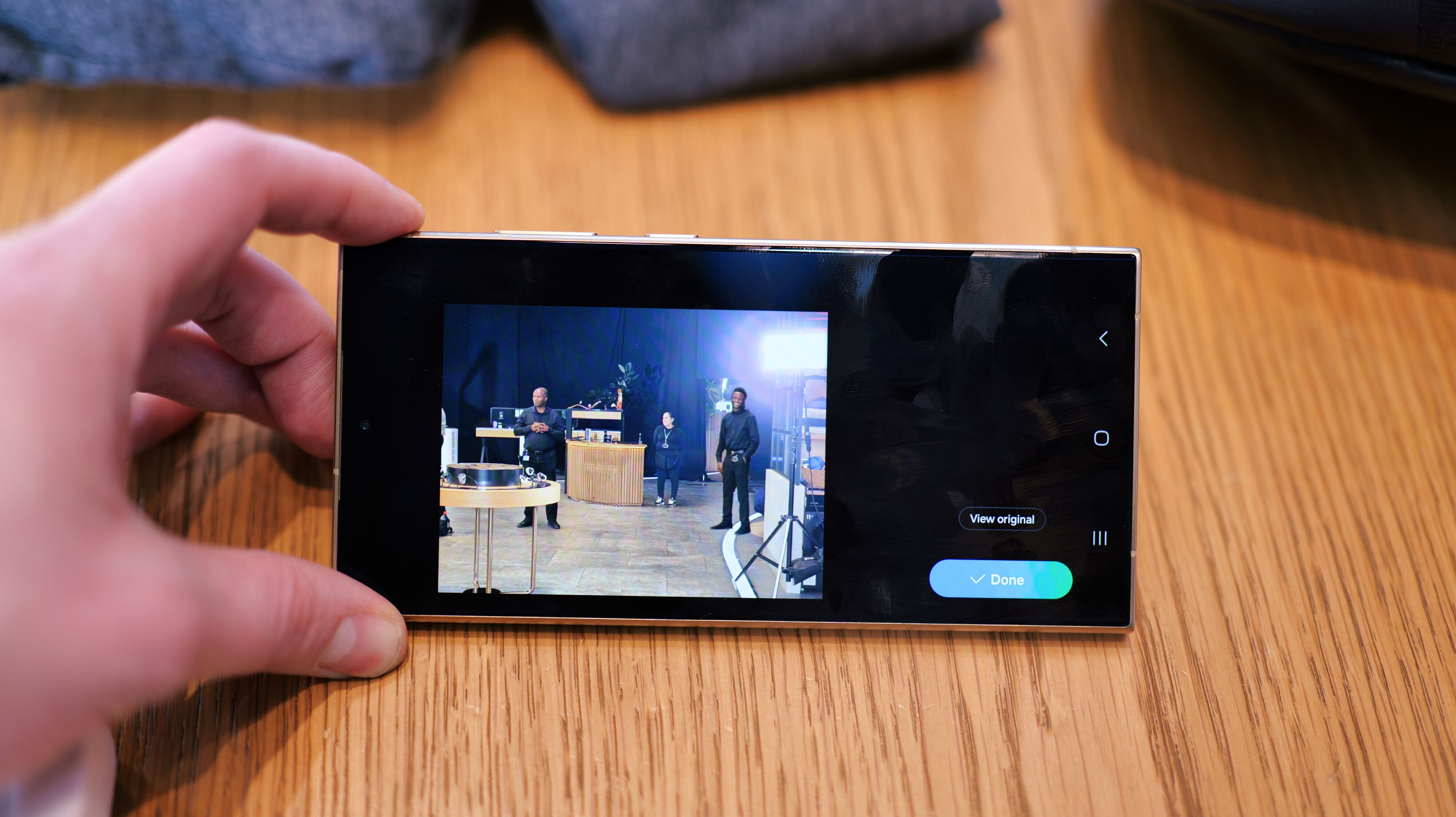
As of now, I have only snapped a few shots indoors, in less-than-ideal lighting, and I didn’t get to take them away with me. From what I could tell on the smartphone display, though, this new telephoto camera seems very capable. The recently released Vivo X100 Pro has a similar setup, using its 4.3x 50MP camera to achieve up to 10x shots, and the results from that have been great, so I’ve got high hopes for this new configuration.
It’s not something that Samsung has been shouting about in its marketing, but the S24 series is now capable of shooting at up to 4K 120fps in both its Pro Video and Slow Motion camera modes. As a bit of a slow-mo obsessive, this is one of the features that I’m personally most excited about.
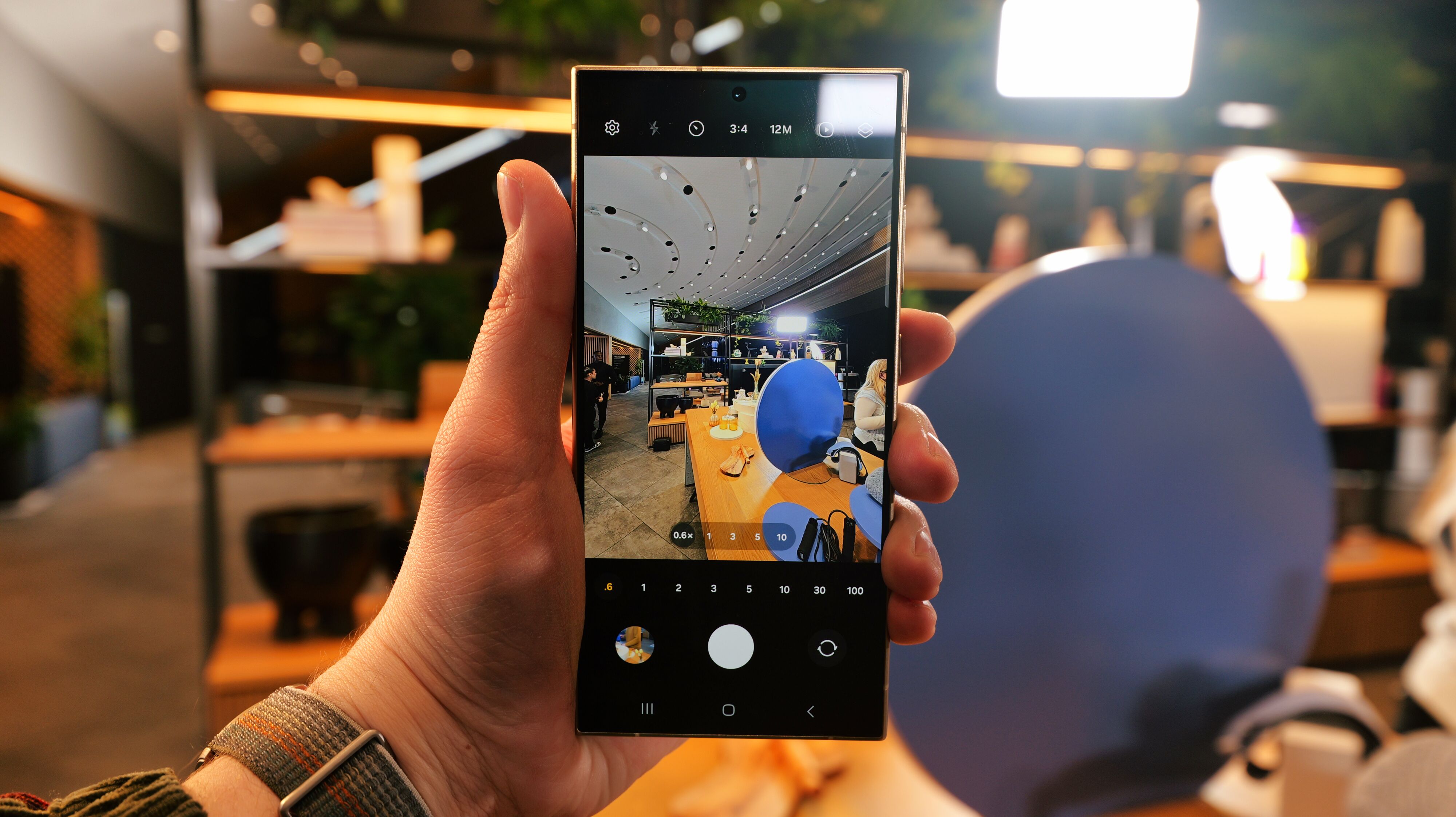
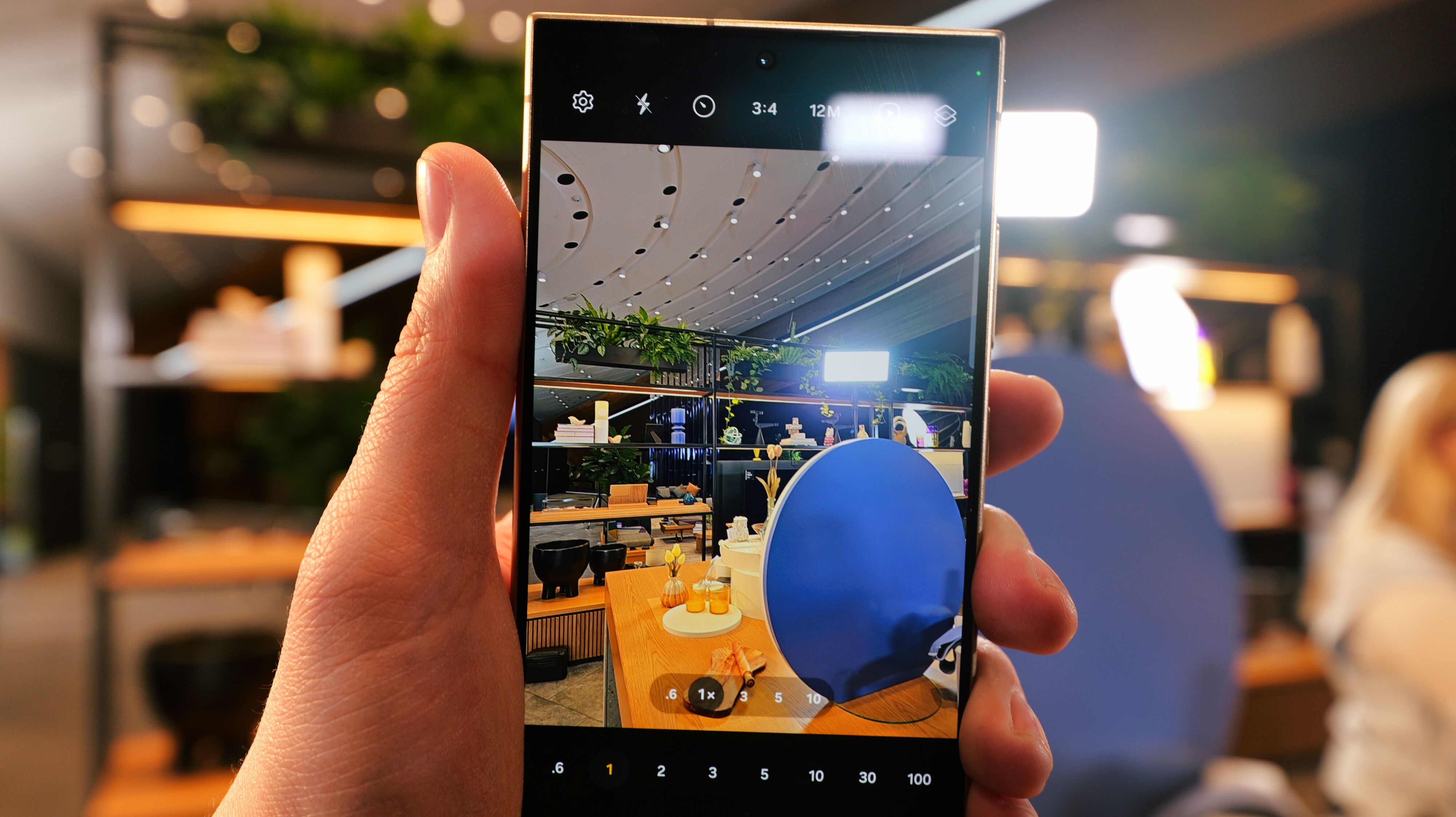
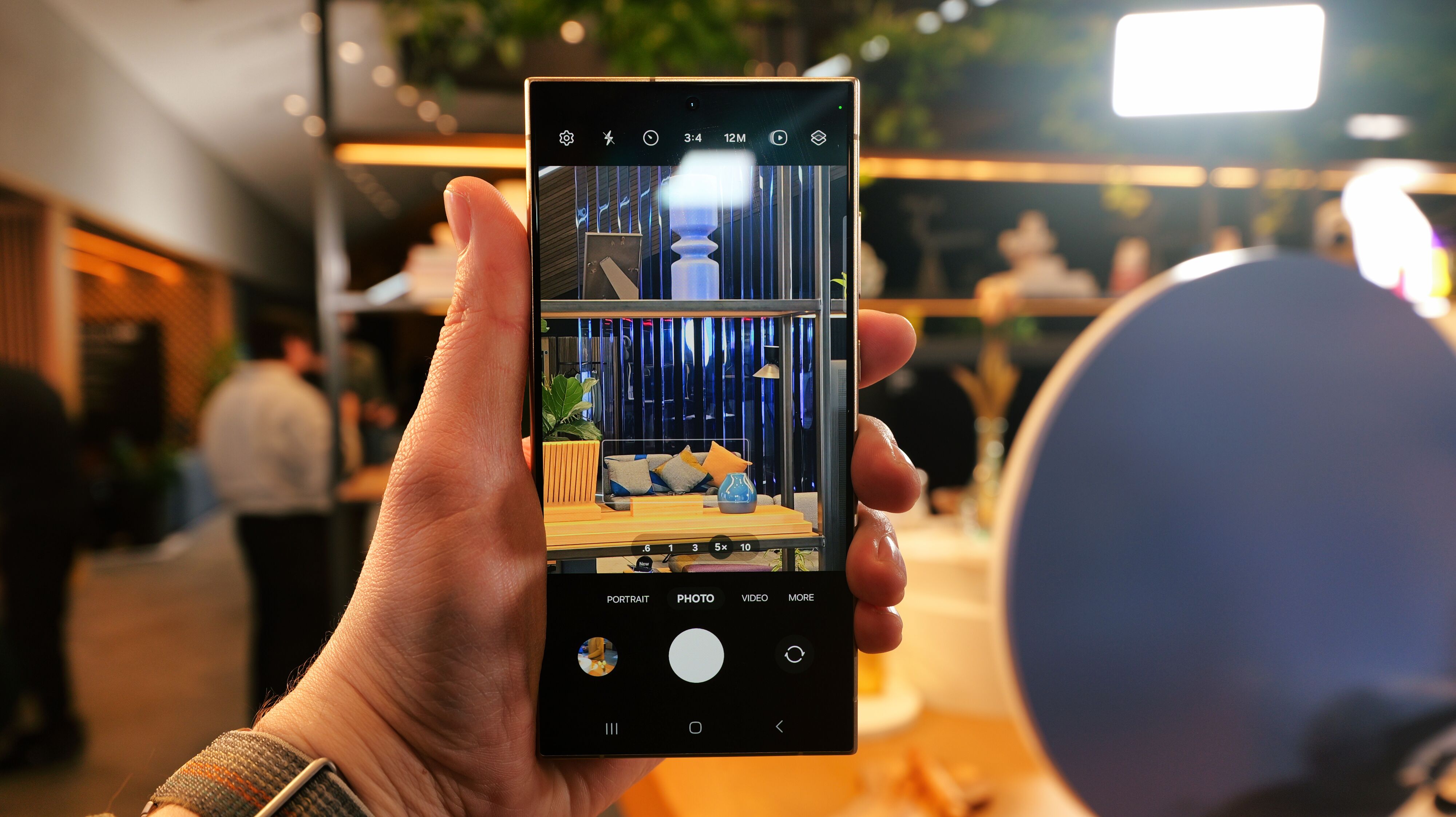
That said, for most users, it’s the software that offers the most exciting improvements on the S24 series. Samsung’s AI magic has made its way into the image editing tools, too, and there’s a range of new effects to bring the most out of your images.
Some of the highlights include the ability to remove reflections on shots that are taken through a window, and the ability to straighten out a crooked photo with no crop, as generative AI fills in the corners. These are relatively subtle edits, but ones that can really make or break a photo.
One of the most impressive AI effects is the ability to move a subject in your image. All it requires is drawing a rough circle around your subject, which the software will refine into a pixel-perfect cutout, and then you can drag them to another location in the frame. When you’re done, generative AI will fill in the hole where your subject once stood. On first impressions, it’s quite amazing, and the results are more convincing than I would have imagined.
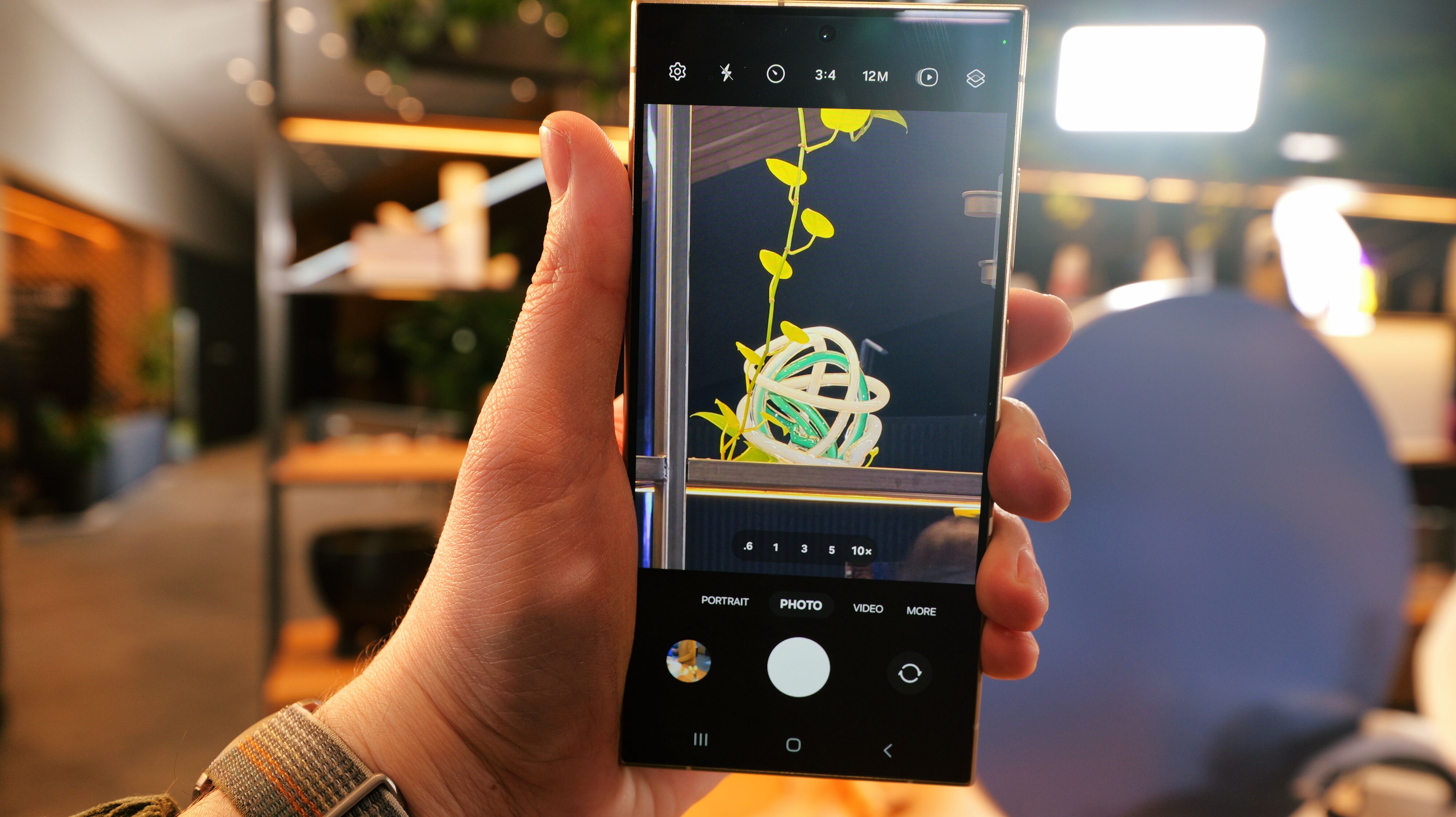
There are plenty of enhancements on the video front, too. One of the standout features is the ability to add slow-motion playback to any video, regardless of the frame rate it was shot in. This effect uses AI frame generation to add intermediary frames to your footage, resulting in smooth slow-motion playback. I didn’t have time to try this for myself, but if it works as advertised, it could be very useful - especially in low-light situations.
Early Verdict
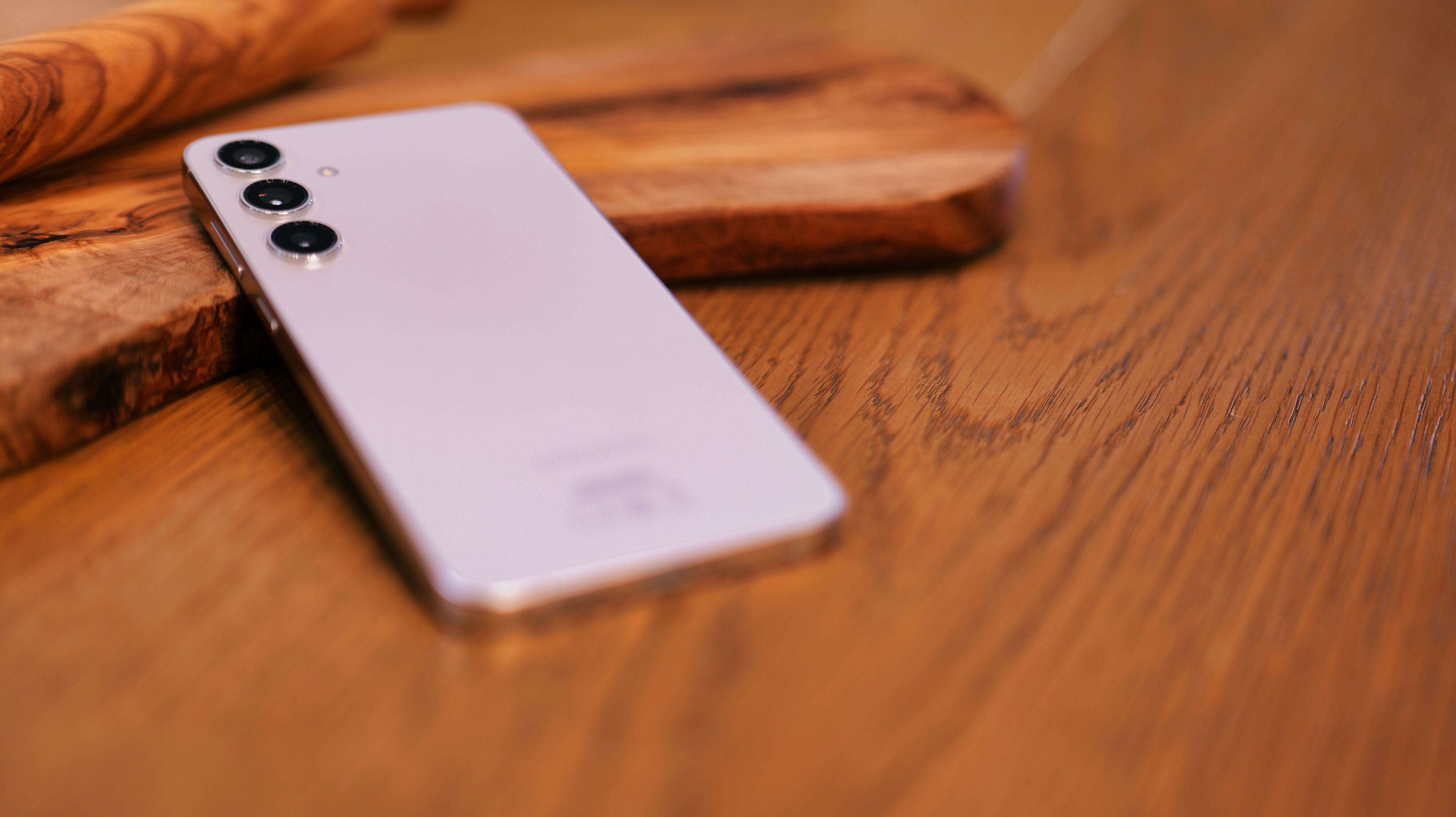
With the Galaxy S24 series, Samsung has chosen to make some subtle, but smart, improvements to the hardware, rather than reinventing its flagship devices. This means that the S24 series looks and feels very familiar, but there are enough refinements to keep things feeling fresh.
A lot of the excitement comes from the integration of AI, both for productivity and creativity, and how you feel about AI will likely guide how you feel about the S24 series phones. It’s hard to deny the power of these tools, and the image-editing capabilities are truly impressive, but I can also imagine them being a turn-off for photographic purists.
The Galaxy S23 series phones were some of the most universally praised Android handsets of last year, and if my first impressions are anything to go by, that’s something likely to continue throughout 2024.







